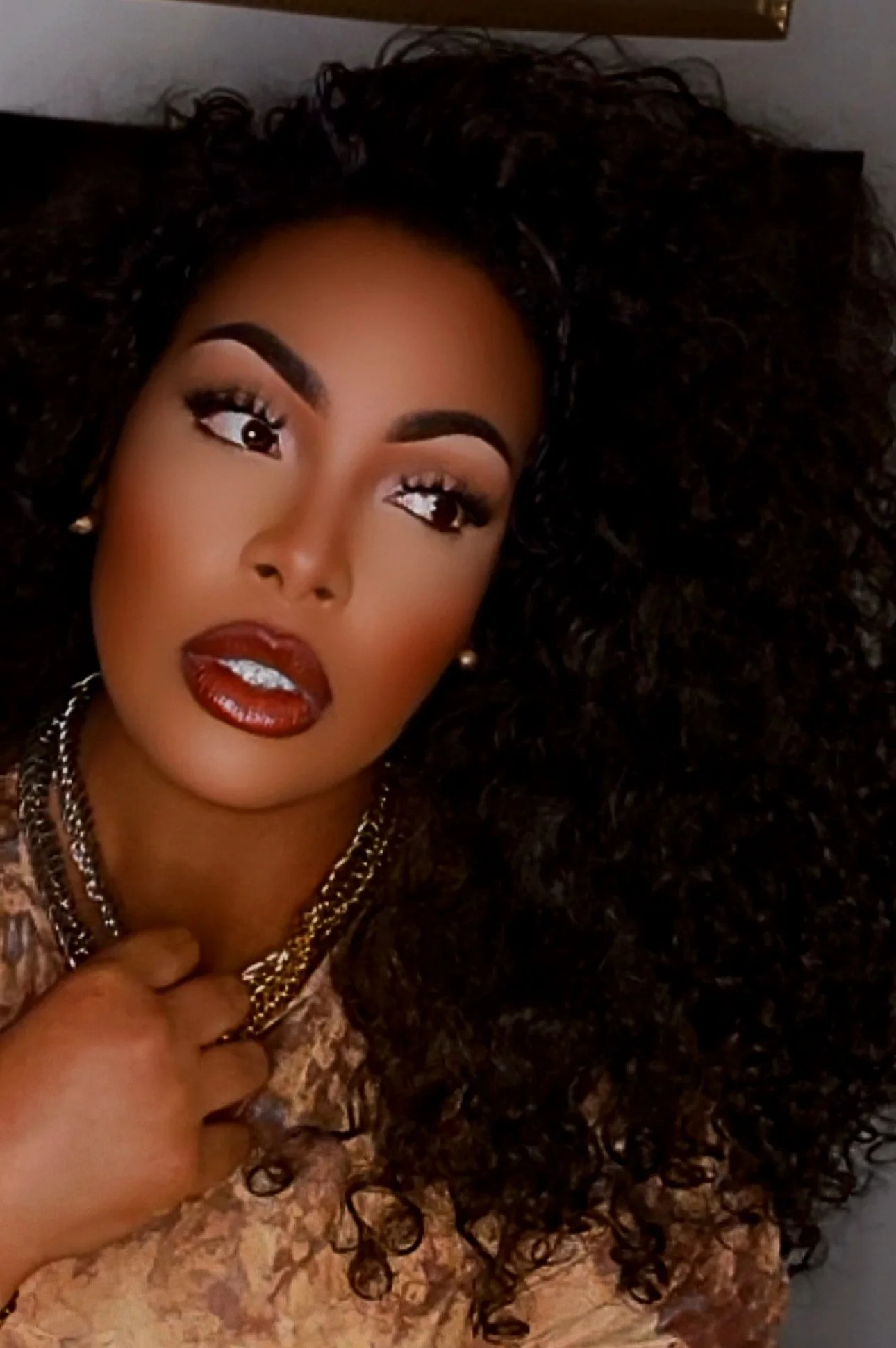She’s Bold, Brilliant, and Black: Meet Shadaria Allison
What experiences in your life have helped you to become the bold woman you are today?
Public failure and motherhood—though not in tandem—have equally served as the prerequisites for the bold woman I am today. Life, as the old saying goes, “ain’t been no crystal stair.” It always amuses me to hear the assumptions about my disposition, the menagerie of successes, and the illusions of grandeur people attach to me. Whether in interviews or, sometimes, when I’m unknowingly surveilled online (no shade), I often chuckle when people inquire about my recent successes. Because truthfully? Nothing felt funny when I was a homeless teen mother. Nothing was entertaining about my life as a troubled twenty-something divorcee with problems too many to list—aside from the fact that my struggles were very public and prime material for gossiping corners. Yet, public failure taught me wisdom. Failure, in and of itself, is laced with every lesson we’ll ever need. But when you fail in front of a crowd? Whew! That’s another type of accountability. It’s the blessing in disguise that this generation fears—because, God forbid, it doesn’t look like we’re winning across every social media platform, right? Wrong.
"Fail fast and in public" is just a motto to help you perfect the landing next time—if there ever is one. At the same time, motherhood—especially single parenting a son—ignited an invisible strength in me for the preservation of legacy. When my feeble arms couldn’t punch another clock from working two or three jobs, when I couldn’t lift my head from the weight of my tears and burdens, I told myself;
You must execute. You must be bold. You must show up. Because legacy depends on your ability—and right behind it, your audacity. My son kept me going. My son kept me bold. Public failure and motherhood were the invisible cheerleaders on the sidelines of my story—one step at a time. And for that, I am most thankful.
Who were your role models growing up and how did they influence your path?
Growing up, I had a strong affinity for celebrities, starlets, models, singers, and social disruptors. I admired TLC and Destiny’s Child, while also appreciating the wisdom of Oprah, Maya Angelou, and Coretta Scott King. These women birthed creative vision and instilled a need for societal bravery among women. Naturally, I was creative and dreamed of being a star. However, as I matured, I began to discern the deeper narratives behind what these women truly represented. Some fought for equal rights in music, others overcame unimaginable odds, and some stood on the front lines for change. No matter what form their impact took, I knew I was next—not out of vanity, but out of the undeniable certainty of one’s calling.
As a Black woman, have you faced any unique challenges that have impacted your journey? How have you navigated moments of adversity?
I was born in 1986. To be fair, I was much like a toad on low boil—slowly simmering in a reality I didn’t yet recognize. As a Black woman, you don’t always realize you’re being cooked by systemic injustices until you’re mature enough to think, Wait... this isn’t right.
I’m not supposed to be cheated out of opportunity.
I’m not supposed to give my all while receiving corporate’s bare minimum.
I’m not supposed to be the “ol’ reliable” in employment sectors, endlessly dependable but never truly valued.
It wasn’t until I matured that I fully understood: to be overweight, Black, and impoverished in America was a unique challenge. A challenge I now feel born to break. Mastering health, continuous learning, and a deep relationship with God has helped me navigate the ever-shifting currents of being a Black woman in America. I’ve faced more challenges than I have room to speak of, but I’ve overcome more than some of my ancestors ever had the chance to—and for that, I am grateful.
How do you want your life and work to impact your community and the world?
I want people to understand the power of God’s ability to transform a life. Growing up as a Christian, I was taught faith as some distant star to reach, rather than a living force meant to transform my life from the inside out. I want both present and future generations to look at my story and say:
"This is a woman who had every odd stacked against her—yet still dared to trust God. Not in some mythical or theoretical way, but in a deeply felt power that transformed her into a change agent for herself and others."
What advice would you give to other Black women about owning their brilliance in spaces that attempt to dim their light?
Grins... Take nothing personally, and you’ll be just fine. Your feelings may get hurt—because your intentions are pure—but again, I say: take ZERO personally. Hear me close: Hurt feelings aren’t the same as taking things personally. When others try to dim your light, understand—they’re just trying to survive. Not hurt you.
You see… light provides evidence. For some, that evidence is:
The talent they don’t have.
The work they didn’t do.
The dream they were too afraid to bring forth.
And the God who spoke to them about it all—but they chose to disobey.
Dimming your light is their desperate attempt to stay in the space where they feel safest—in survival mode. And where do most people survive? In the dark. And if you know anything about survival, you know the dark is the habitat of savages—where one could expect a fight. So to that, I say: Walk into the room like they have no choice. No choice but to LIVE instead of just surviving. Don’t you dare apologize for being the light.
Ever.
How can our readers connect with you?
TikTok: ideas4dastarz
Email:info@drallison911.com or
GirlbossPublishingllc@gmail.com
IG: shadaria_allison
Website: theamericanunicorn.com

